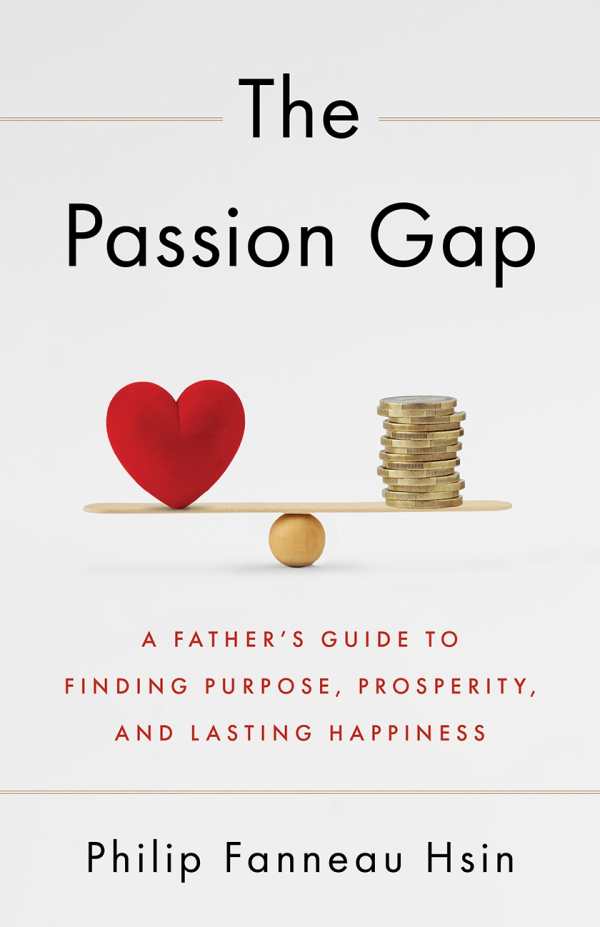The Passion Gap
What Our Parents Didn't Teach Us About Purpose, Prosperity, and Lasting Happiness
The Passion Gap is an empathetic guidebook to achieving personal fulfillment.
Philip F. Hsin’s thought-provoking self-help book The Passion Gap is about finding meaning, purpose, and lasting joy.
One of four children, Hsin was nine years old when his family fled war in Cambodia and started anew in a low-income area of Portland, Oregon. His book describes how prioritizing financial success and a hedonistic lifestyle left him feeling empty. But when he became a father at the age of forty-four, he wanted to be sure not to pass his “emotional baggage” on. This book, a legacy project, was the result—a guidebook to discovering one’s true values and living in alignment with them.
Drawing on personal experience, philosophy, psychology, and neuroscience, the book identifies states of dissatisfaction and disengagement that arise from disconnection with one’s personal values, meaning, and purpose. It reaches into history to show that “happiness” was not considered a suitable priority until the mid-eighteenth century, after which many people, still under the influence of religion and the social exaltation of hard work and austerity, continued to look askance at the concept. It also eschews the notion that financial success and prestige are the true measures of lasting happiness, reframing happiness as being about the choice to live in service to one’s god, society, or family—the “North Stars” for navigating a purposeful, value-aligned life.
Moving between people’s stories and statistical support to illustrate its notions, the book works throughout to debunk the idea that personal, financial, and social “success” leads to happiness. Each chapter ends with suggested takeaways, learning points, prompts for reflection, and probing questions to encourage deeper engagement. However, the book devotes considerable space to revealing what holds people back from happiness, so that its personal application portion does not arise in full until Part III, which is about identifying one’s true values and avoiding extant pitfalls, reconciling the “quest for long-term happiness with the need to earn through ideas related to passion, as well as meaning and purpose.” Before that, it explores a variety of topics in depth, including the relationship between money and happiness; thriving despite global “wealth gap[s]”; the different mindsets of entrepreneurs, employees, and investors; and what’s required for true financial independence. It is sometimes discursive, as where it takes a stance against capitalism fueled by the maxim “greed is good” and advocates for a free-market system characterized by greater empathy, delaying its most helpful guidance.
An empathetic self-help guide, The Passion Gap is about cultivating self-awareness, thoughtfulness, and patience in order to achieve personal fulfillment.
Reviewed by
Kristine Morris
Disclosure: This article is not an endorsement, but a review. The publisher of this book provided free copies of the book and paid a small fee to have their book reviewed by a professional reviewer. Foreword Reviews and Clarion Reviews make no guarantee that the publisher will receive a positive review. Foreword Magazine, Inc. is disclosing this in accordance with the Federal Trade Commission’s 16 CFR, Part 255.

